

A typical PhD student schedule [Free template download]
A PhD student’s schedule is very different to anything that people have experienced in undergraduate or masters level education. Depending on the country that you are doing your PhD in, you may have classes alongside your dedicated research time. It is likely that you will work many hours more than a typical full-time job and may have some other administrative or teaching duties alongside your research.
A typical PhD student schedule involves turning up to the Department between 8 AM and 9 PM, and performing research activities during the day such as reading, writing, analyzing and reporting on literature and experiments.
The schedule of a PhD student also changes depending on the culture in your research group. Some supervisors require PhD students to turn up 6 to 7 days a week and spend up to 12 hours a day doing research. In my experience, this is very rare but a horror story that often gets passed around.
Most PhD supervisors are much more moderate when it comes to the commitments of their students and this article will cover the typical PhD student schedule and what you can expect if you enter a PhD.
A typical PhD daily schedule
A typical PhD student’s daily schedule will vary depending on the subject area, supervisor, and stage of your PhD. However, there are some things that are done consistently throughout the process of a PhD.
Here is a typical daily schedule of a PhD student.
The above timetable can also include:
- teaching activities
- group meetings
- departmental meetings
- other administrative tasks
- training, and much more
There are so many facets to a PhD students daily schedule that it changes almost every day depending on the demands of the research and the supervisor.
Here are some of the activities that a typical PhD student schedule contains. I have also looked at some of the specifics of different subject fields.
Common PhD student activities
A PhD is a training ground for academia.
Throughout a PhD, you will learn to perform the tasks of an academic such as reading literature, writing reports, analysing data, reporting and communicating your results, and presenting or attending different scientific talks and presentations.

Reading is the cornerstone of a PhD.
Learning to find the appropriate literature for your research and coming up with a method for reading, taking notes, and synthesising conclusions will be what sets out the top 10% of PhD students from the rest.
Many PhD students forget to set aside enough time for reading and it can severely impact their progress.
Reading wasn’t my favourite part of doing a PhD and I probably ignored it more than I should have. Nonetheless, ensuring you read regularly in and around your subject area will keep you up-to-date with the latest advancements in your field.
Supervisor meetings
Meeting regularly with your supervisor will keep your PhD on track.
Open communication between a PhD supervisor and the student ensures timely completion and help when things aren’t going so well.
My favourite frequency for supervisor meetings was fortnightly.
Every two weeks means I had enough time to plan, execute, and analyse data based on our previous meeting.
During supervisor meetings, you should share everything that has happened since the previous meeting. Importantly, you should share what has gone right, and wrong, and where you are going next. Head into supervisor meetings with solutions to problems and be sure to take criticism with an open mind.
Depending on your research area it may be more appropriate to meet up with your supervisor weekly to report your progress.
Writing during a PhD is often left until the last year but it is important to write regularly throughout your PhD.
Regular writing (even if it is just methods) will help you when you come to write your thesis or peer-reviewed paper.
During a PhD there are often different writing milestones that you need to achieve including:
- literature reviews
- conference abstracts
- technical reports for collaborators
- progress reports for grant funders
- peer review paper writing
- thesis or dissertation writing
As you can see, there are lots of different times when a PhD student will be set at their desk writing up results for a variety of audiences.
Formulating your own ideas and contributing to an academic field means analysing data and literature.
Many hours of PhD student time are dedicated to the analysis of other people’s ideas, data collected in the lab, and stress testing their own hypotheses.
Analysis is another cornerstone of a PhD.
Reporting your research findings is incredibly important. Communication is what keeps research rolling.
There are several ways that PhD students have to report their results. They may be reporting to their supervisor, collaborators, others in their field, all the general public.
One thing I loved about my PhD was the ability to communicate my research to a general and broad audience.
Writing reports, producing presentations, and writing performance reports for grant funding bodies are all important parts of a PhD student’s typical schedule.
Group/department meetings
After starting my PhD I was amazed at the amount of group and departmental meetings that I was expected to attend.
They seem to always be scheduled at a really inappropriate time and can cut your working day in half. Nonetheless, they are an important part of the PhD process.
Group meetings are for people in the same research group to share their findings and help each other with their work.
Departmental meetings may have an external presenter (from another university or Department) and so they must be well attended to give the appearance of an active and vibrant research community. You’ll get loads of emails reminding you about a meeting if there is a guest lecturer.
Topic-specific activities
Depending on the topic of your PhD you may have some other regular activities.
Humanities students will spend a fair amount of time in the library and reading academic texts. Looking for rare books, papers, and collections in the deepest darkest areas of the library are where you will find many humanity PhD’s.
Science, technology, engineering and maths PhD students will spend a lot of time performing experiments in a laboratory environment.
They will also help train masters and undergraduate students on particular instruments or techniques and be responsible for Occupational Health & Safety in the labs.
Because of the nature of a stem PhD, a science, technology, engineering or maths PhD student will spend many hours alone working in the depths of a university lab.
Social Sciences
Social sciences are likely to be conducting research using surveys or interviews and handling large amounts of data.
Making sure that they have ethical approval for their research can take a bit of time too.
Collecting enough data through questionnaires and surveys is always an issue for social science PhD students so they will be out collecting data as often as possible. They may have research assistants and undergraduates that can help them with their work.
Number of hours that PhD students work
There is no one answer to the number of hours that PhD students work. The number of hours is determined by the culture of the lab and the stage of the PhD.
On average a PhD student will work 40 – 60 hours per week.
Most will try to keep a regular 9 – 5 schedule whilst others will work when they are at their most productive. I know of one PhD student who would come into the lab at 5 PM and stay until one or two in the morning.
The great thing about doing a PhD is that you quite often get to choose your schedule. You may want to work early in the morning or late at night depending on when you feel most awake.
Also, you get to choose where you perform your PhD studies, as long as you do not need to be in a lab or present in the department.
What does a great PhD schedule look like?
A PhD student’s schedule can easily become unproductive if they go with the flow.
I believe that a strong daily schedule and commitment to at least two hours of focused work every single day will lead you to a much more rewarding and efficient.
I released a YouTube video that talks about the components of a failproof PhD daily schedule and you can watch it here:
I also include links to my daily schedule template that you can also get for free by clicking the image below:

Wrapping up
This article has been through everything you need to know about the typical PhD student schedule and how many hours you are expected to be in your office or department.
Having a frank conversation with your PhD supervisor will allow you to understand their expectations of their PhD students. It varies wildly from supervisor to supervisor – so it’s very good to be on the same page as soon as you start.
Remember to download my free daily schedule template to boost your productivity!

Dr Andrew Stapleton has a Masters and PhD in Chemistry from the UK and Australia. He has many years of research experience and has worked as a Postdoctoral Fellow and Associate at a number of Universities. Although having secured funding for his own research, he left academia to help others with his YouTube channel all about the inner workings of academia and how to make it work for you.
Thank you for visiting Academia Insider.
We are here to help you navigate Academia as painlessly as possible. We are supported by our readers and by visiting you are helping us earn a small amount through ads and affiliate revenue - Thank you!

2024 © Academia Insider

- Shopping Cart
- Free planners and guides
PhD Toolkit
Free templates and planners available for you to download.
The book Planning Your PhD describes a number of planners and forms you can use to help plan your PhD. You can download these planners and forms below.
- Show Planners
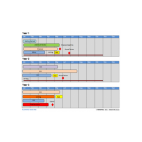
Thesis Planner - Moveable tasks
This planner allows you to work out the timeline for the major tasks of your PhD. ..
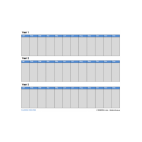
Thesis Planner - No tasks
This planner allows you to work out the timeline for the major tasks of your PhD ..
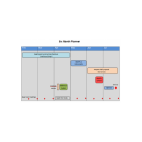
Six Month Planner - Moveable tasks
The Six Month Planner lets you map out your tasks for the next six months ..

Six Month Planner - No tasks
This blank planner shows you the next six months which you can fill in ..
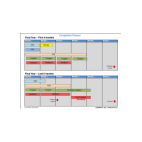
Completion Planner - Moveable tasks
This Completion Planner allows you to work out the timeline for the major tasks of the final year..
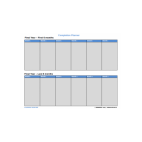
Completion Planner - No tasks
This blank Completion Planner shows you the final twelve months of your PhD ..
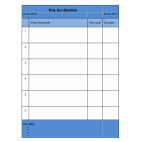
This Six Months
This form helps you identify your targets for the next six months ..
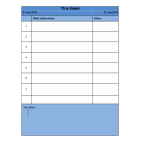
Use this form to map out your tasks for the coming week ..
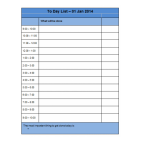
To Day List
Use this form to plan out your day and identify when the important jobs are going to get done ..
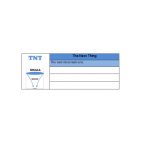
The Next Thing
To help you get clear about your very next task ..
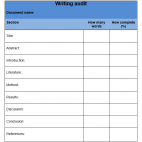
Writing Audit
Use the Writing Audit to work out how much writing you have done and update it as you add new wor..
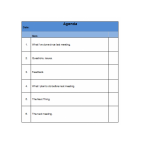
Meeting Agenda
A template agenda for meetings with your supervisor ..
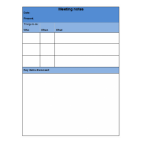
Meeting Notes
A template for noting down the outcomes of your meetings with your supervisor ..

PhD Toolkit - All forms
Download all PhD Toolkit forms in a zip ..

PhD Toolkit - All planners
Download all PhD Toolkit planners in a zip ..

How to Manage Your PhD Timeline for Smoother Research Completion
It’s finally happening! The university has sent you an acceptance letter for the PhD program you had applied to. Getting into a doctoral program is not an easy task, and the speculations around it of being one of the toughest courses can’t be denied either. However, despite it being a daunting journey, one can smoothly sail through by managing the PhD timeline smartly. So sit back and read this article to plan your Ph.D. research timeline in an effective and hassle-free manner.
Table of Contents
Why Should You Draw a Ph.D. Timeline?
A PhD journey is laid with several milestones that come as you proceed. Thus, drawing a timeline preemptively helps researchers stay away from the last-minute terror of submissions, presentations, committee meetings, viva, etc. Furthermore, creating a timeline and adhering to it makes you a better learner and instills discipline in you.
How to Begin with the PhD Timeline Planning?
While creating a well-structured timeline, you must ask these questions to yourself and to your supervisor:
- What are the important steps of a PhD program?
- How many projects do you have to work on?
- What are the technical milestones for developing a protocol?
- What are the risks associated?
What to Do Before Creating Your PhD Timeline?
Obtaining a doctoral degree is a process of completing of required credits, passing the qualification test for submitting a doctoral thesis, writing and submitting a thesis, and final viva voce.
Follow these steps as you create your PhD Timeline :
- Attend the program orientation to understand specific graduation requirements
- Make a list of technical events such as conferences, committee meetings, PhD viva voce , presentations, qualification examination, etc.
- Manage your PhD timeline term-wise or month-wise
- Make a list of events on priority-basis
Step-wise Guide to Create Your PhD Timeline
Let’s take a detailed look at the steps required for a PhD. It is important to know what each step entails and what the deadline is for each of it. Generally, all universities have strict graduation requirements. A doctoral student is expected to complete a minimum number of credits to qualify as a PhD candidate. However, in some cases, a master’s degree is required for the doctoral program, and if you have obtained a master’s degree, you may be awarded a doctoral degree only through a research course without taking additional credits.
Here are 8 major milestones of a PhD program:
Milestone 1: Through consultation with your advisor, check whether there are any special graduation requirements other than the university and department that you may have to complete as part of your program.
Milestone 2: The supervisory committee must be formed within one year of the doctoral program and must have at least one meeting to plan the successful conclusion of a research project. In addition to the advisor, at least two other university professors are required to be members of this committee. Doctoral students must receive advice on how the doctoral program is progressing through regular meetings of the committee.
Milestone 3: In the second year of the doctoral program, you must pass a comprehensive exam which is known as the PhD qualifying examination . It is an oral presentation and oral exam of approximately 2 hours in front of 6-7 professors, essentially including one non-university professor, members of the Supervisory/Supervisory Board, and two other professors from your university and your advisors. Upon passing this exam, the PhD student’s status changes to PhD candidate. This makes him/her eligible to receive the doctoral degree.
Milestone 4: After that, by presenting the thesis and participating in conferences, the doctoral student must conduct his doctoral research in-depth and be recognized for it.
Milestone 5: When the curriculum requirements are met, the deadline for completing the doctoral thesis is determined through consultation with the advisor, and this is approved by the guidance committee.
Milestone 6: As a prerequisite before appearing for PhD viva, discuss the completed thesis with your advisor and select PhD external examiners related to the research field.
Milestone 7: Once the external expert/s reviews and approves the value, logic, and results of the doctoral thesis, the doctoral office allows the PhD candidate to take the thesis defense as the next course. In this defense, PhD candidates must pass a 2.5-3-hour oral examination based on their thesis in front of the doctoral examination panel.
Milestone 8: After receiving approval from the attending professors on the doctoral examination panel, submitting the final thesis, and applying for the doctoral degree, you will finally graduate with your PhD degree.
To download the PhD Timeline Template, click here !
Key takeaways.
Don’t get discouraged when someone shares their anecdotes of surviving a cumbersome PhD journey. Everyone applying for a doctoral program meets obstacles along the way; however, setting a proper timeline and following it diligently will only make your journey smoother than the rest. Do your best in accordance with your conscience, your mission as a learning scholar, and the regulations of your university. Wishing you a successful academic life with this PhD timeline . Let us know how you plan to soar through your PhD in the comments section below.
Rate this article Cancel Reply
Your email address will not be published.

Enago Academy's Most Popular Articles

- Career Corner
- Trending Now
Recognizing the signs: A guide to overcoming academic burnout
As the sun set over the campus, casting long shadows through the library windows, Alex…

- Publishing Research
- Reporting Research
How to Optimize Your Research Process: A step-by-step guide
For researchers across disciplines, the path to uncovering novel findings and insights is often filled…

- Industry News
Breaking Barriers: Sony and Nature unveil “Women in Technology Award”
Sony Group Corporation and the prestigious scientific journal Nature have collaborated to launch the inaugural…

Achieving Research Excellence: Checklist for good research practices
Academia is built on the foundation of trustworthy and high-quality research, supported by the pillars…

- Promoting Research
Plain Language Summary — Communicating your research to bridge the academic-lay gap
Science can be complex, but does that mean it should not be accessible to the…
Unlocking the Power of Networking in Academic Conferences
Intersectionality in Academia: Dealing with diverse perspectives
Meritocracy and Diversity in Science: Increasing inclusivity in STEM education

Sign-up to read more
Subscribe for free to get unrestricted access to all our resources on research writing and academic publishing including:
- 2000+ blog articles
- 50+ Webinars
- 10+ Expert podcasts
- 50+ Infographics
- 10+ Checklists
- Research Guides
We hate spam too. We promise to protect your privacy and never spam you.
I am looking for Editing/ Proofreading services for my manuscript Tentative date of next journal submission:

As a researcher, what do you consider most when choosing an image manipulation detector?

How to Prepare Actionable PhD Research Plan Template
“Where PhD is highly uncertain, an actionable PhD research plan would give you calculative and tentative outcomes. And even more, the ready-to-use template makes things even better. Let’s take a close look at the research plan + template.”
Before moving forward, it’s important to understand the process and steps in research . Then only you can make an actionable plan for your PhD research. It’s literally like driving without breaks— that you don’t want.
In a broader sense, when you plan something, it shows two things: first, you are actually serious about the work you are planning and second, you are expecting some outcomes. And by a plan, you are heading towards it.
I know, plans may not work 100% all the time, but they may create a definite path to achieve at least 80% success in the work you are doing. This is also true for a PhD— in which you would constantly try to justify a single sentence– your research title.
So– Yes, the research process is undetermined and so the results too! but here is the catch and perhaps answer why you have to have a research plan. In this article, I will explain the importance of a research plan, an actionable research plan and a ready-to-use template for you.
How to prepare an actionable research plan?
Importance of phd research plan , wrapping up.
An actionable research plan is what you have to rely upon. So it should be perfect and approved. how can you prepare your own? Let’s see.
Understand the steps in the research and closely follow them.
Define the objectives and scope of your study.
Define each goal of your study– For example, sample collection, wet lab work, standardization, experimentation, data collection and interpretation, etc.
Enlist what types of problems you may face for each goal– For example, transportation for sample collection, Lack of facilities in wet lab work, etc.
Find a solution for each problem you have enlisted– For example, appoint an expert for sample collection and transport samples in a cold chain. If your lab doesn’t have some instruments or chemicals, priorly contact other labs and ask them for help.
Draw a rough road map for your work— the route using which you will achieve your research goals. Also, make a backup. What if the route or process you selected would not work? Check out this drawing to understand my point.
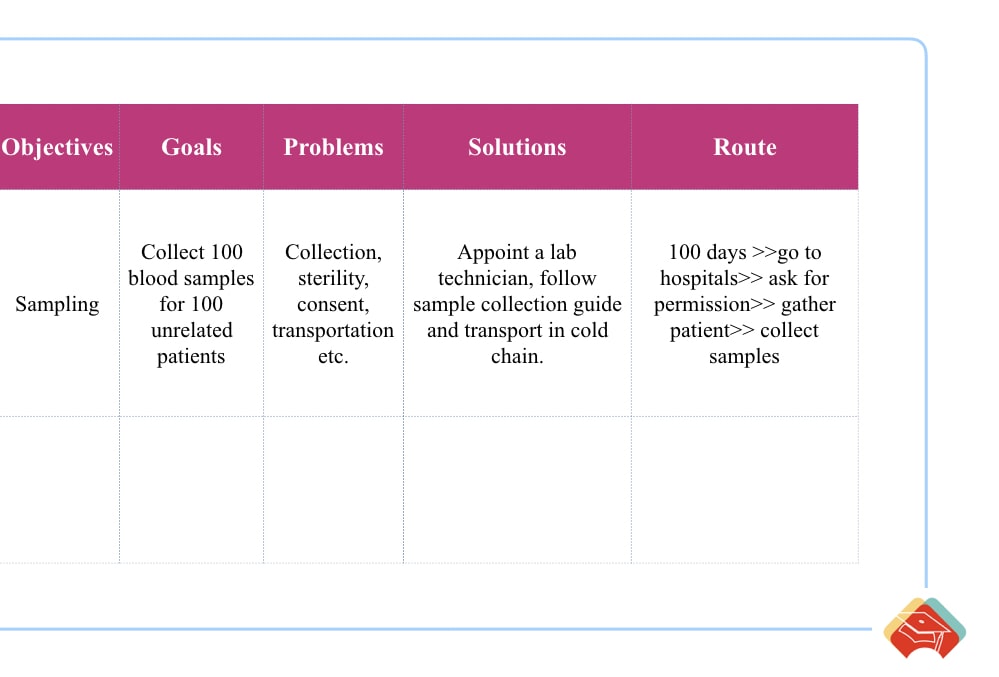
Now prepare a timeline— in how much time a particular goal should be achieved. For example, 6 Months for sampling (Including, ethical approval, approval from sampling authority, consent, preparation and arrangement for utilities).
Another is sample collection— 3 Months which isn’t covered in the 6 months of sampling objective, like this. Take a look at the drawing here.
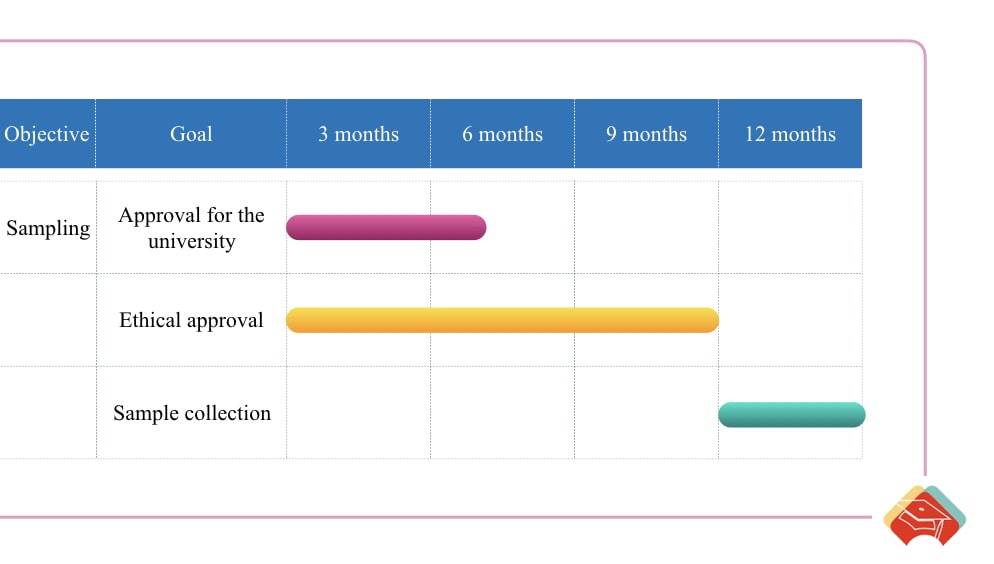
Note: This timeline must match with your GANTT chart for PhD timeline because you are making an actionable plan.
Now your plan is reading. You are now aware of each objective, goal and problem. Some you probably solved, and some you can manage later. This you can print and stitch in your logbook or can save on your desktop.
Take a look at the advantages, and why it’s important to prepare an action plan.
Related article: How to Prepare a PhD Research Plan/Schedule?
Let’s start with two real-world examples first.
One of my friends, after sample collection and initiating the testing, found out that she also has to perform hormone assays for samples. The samples she collected are 3 months old— not possible to assess quantitative analysis.
Another colleague after sample collection– when he started working in the wet lab, came to know that one important instrument is not there in their lab. His guide is very serious about the goal that they have to do it anyhow.
He sent applications to various universities and research centers to work on that particular instrument. From approval to real testing, it tools all almost 8 months including, approval, training, transportation, etc.
Wasted much time!
- An actionable research plan saves your time— which is a crucial factor in PhD.
- It makes you aware of the pros and cons of your study.
- It makes you aware of the problems and limitations of the research you conduct.
- It gives you a broad roadmap to achieve your PhD in “some” tentative time.
- It gives you the flexibility to achieve goals and enjoy your time at the same time.
- You can make real-time monitoring of how your research is going and how much work is left.
- It makes you aware of what should be your next move and the preparations you required.
However, keep in mind that once you prepare a plan, review it from your guide, take their advice, enlist major objectives and techniques you would use for the study and stick to it.
Before preparing that, read the literature regarding your topic and understand the way in which your research should be headed.
Check out our fully customizable, ready-to-use and actionable research plan template.
Download a research plan template
These things look a bit old school but it works, really works well. Most students don’t do it and end up messing things and at last, came to know that they wasted their time. At least, the research plan will tell you where you are stuck (probably) and you can find a solution.
We know how hard it is to predict the future of PhD or how it would go. But let me tell you, with an actionable plan, many do well. And you can too. Take your doctorate seriously from day one. And do accordingly.
Remember your goal should be to complete your degree in time.

Dr. Tushar Chauhan is a Scientist, Blogger and Scientific-writer. He has completed PhD in Genetics. Dr. Chauhan is a PhD coach and tutor.
Share this:

- Share on Facebook
- Share on Twitter
- Share on Pinterest
- Share on Linkedin
- Share via Email
About The Author

Dr Tushar Chauhan
Related posts.

A Definite Research Process for PhD- What Students Should Know?

What are Research- Aim, Objectives, Tasks/Goals? [Our System]
Leave a comment cancel reply.
Your email address will not be published. Required fields are marked *
Save my name, email, and website in this browser for the next time I comment.
Notify me of follow-up comments by email.
Notify me of new posts by email.
Amplifying The Voices Of PhD Students
Free Resources

Cute Animal Calendar
Keeping track of the days during your PhD is a great idea. It’s even better if you have a calendar with pictures of cute animals! Download and print this calendar off so you always have pictures of cute animals around!
It’s free!
You can download it and any other free resource we have.

Manuscript Cover Letter Template
By default, the cover letter is one of the first things an editor will see. It’s important to make a good first impression. Use this template to help you write a strong cover letter.
Supervisor-Student Questionnaire
One of the key elements to supervising a PhD student is to make sure both you and they agree on who does what and to what extent. This is a questionnaire that helps you determine that.
Questions To Ask Potential PhD Students
Being an academic means that you’ll get people asking if you’ll supervise their PhD projects.
This is questionnaire helps you determine which projects and potential PhD students you should supervise. By doing so, both you and your student will benefit because the project will do better and it will be easier on everyone.
Just fill in the form below and you can download it and any other free resource we have.
Task Planning Template
This template is to help you and your student plan the upcoming tasks each meeting.
It breaks down the different aspects of the task to facilitate its successful and timely completion.
You can download it below and any other free resource we have.
Achievement and Motivation Template
This template helps you keep your students motivated.
Keep track of their achievements and help them stay motivated!
Paper Planning Template
Use this template to help your students plan their papers – make them easier and better!
Conference Presentation Planner
Use this planner to help your students better prepare their conference presentations.
Research Question Checklist
Making sure you have a good research question is vital for any PhD student.
Use this research question checklist to make sure your students have good questions to focus their research around!
Responding To Reviewer Comments Template
You can’t get your paper published without going through reviewer comments.
Organizing your responses greatly helps you make sure you properly address them and boost your chances of getting your paper accepted.
Use this template to help you do exactly that!
Meeting Planner
The more organized you are for your meeting, the more you’ll get out of it!
How many times have you left a meeting and suddenly realized you forgot to bring up something?
Use this Meeting Planner to make your meetings with your supervisors more efficient and effective!
Student Project Planner
Use this planner to help your students keep track of their projects between meetings.
Manuscript Cover Letter
Paper Notes Template
Questions to ask potential PhD students
Task planning template
Achievements and motivation template
Paper Planner template
Conference Presentation planner
Responding to Reviewer Comments Template
Student Project Tracker
Want to make your PhD even easier? Read our book, “ 100 Tips For Doing Your PhD “ . It covers everything from picking a good research question, to how to stay motivated, to how to network and get a job, and everything in between. Find it here !

Want to make writing journal and conference papers easier? Read our book, “ How To Write An Academic Paper 101 ” here !

It’s no secret that international PhD students face unique challenges.
All of these challenges are on top of the ones that a typical PhD throws at you.
To help you overcome these challenges, we wrote, “100 Tips For International PhD Students”.
If you want to make your time doing your PhD abroad easier and more manageable, then read it here !

Share this:
Templates for academic productivity
**This post will be updated sporadically.

Photo by Andrea Piacquadio on Pexels.com
One of the glorious things about trying to improve your productivity, consistency, or focus is that it is both practice-oriented and buildable. In this post, I want to provide you with tools and templates for monitoring, reviewing and increasing academic/work productivity.
Here are two templates that you can use right at the beginning of the semester/year:
Template 1:
Track your organic weekly schedule to get a better idea of how you spend your time..
(If you would like the template below in PDF form, let me know over on my Instagram: @ productivephdninja )

Template 2:
Plan out your semester/year both for personal and professional tasks using the semester calendar template..

Hope these templates help you improve your life!
Share this:
Begin typing your search above and press return to search. Press Esc to cancel.

- Already have a WordPress.com account? Log in now.
- Subscribe Subscribed
- Copy shortlink
- Report this content
- View post in Reader
- Manage subscriptions
- Collapse this bar
How to develop an awesome PhD timeline step-by-step
A successful PhD journey begins with a solid plan that includes a PhD timeline . A thought-through and well-designed PhD timeline requires some time but can be accomplished in a few simple steps.
Why a clear PhD research timeline matters
Step 1: decide what to include in your phd timeline, step 2: discuss your provisional phd timeline with your supervisor/s, step 3: design your phd timeline, step 4: regularly update your phd timeline.
Doing a PhD means committing to a challenging project that spans several years. Therefore, it is no surprise that doing a PhD can feel quite overwhelming. How do you even begin to tackle such a huge project?
A PhD timeline breaks down the daunting task of doing a PhD into an actionable plan with tasks and milestones along the way.
Even if not everything will go as planned (which is normal and no problem!), a PhD timeline can give PhD students peace of mind. A good plan, worked out in a PhD timeline, helps them to structure their time, communicate their goals and work toward specific targets.
Some PhD students are required to create a PhD timeline as part of their programme. Yet, even if PhD students are not required to do so, it is highly recommended to create a PhD timeline!
PhD timelines should be as diverse as PhD research projects: What you decide to include in your timeline should fit to your situation, goals and your programmes’ requirements.
Common elements included in a PhD timeline are the following:
- Data collection : How, when and where are you collecting your research data?
- Fieldwork : Is your data collection spread out or are you spending several weeks doing fieldwork? If so, when is this scheduled and how can you avoid overlaps with other requirements, such as coursework?
- Experiments : Are you running experiments for your PhD research? If so, when? And how long do you estimate this will take you?
- Data analysis : Once you have your data, be it quantitative or qualitative data, when and how do you analyse it? How much time do you block for this task?
- Writing plan : When are you writing down your results? How can you break down writing into different parts, for instance, writing goals per chapter or article?
- Publications : Publication requirements differ from PhD programme to programme. Even if you write your PhD as a monograph (instead of a selection of articles) , you should try to publish something during your PhD. When would you have an opportunity to do so, and how much time does it require?
- Conferences : Every PhD student should present at a conference during their PhD trajectory. Which conferences are you interested in? When do they take place, and when would you have findings to share at a conference?
- Coursework : What are your PhD programme’s coursework requirements? What courses are you interested in, and when are they offered?
- Other activities : Are there any other activities that are crucial for your PhD project? Think, for instance, about an extensive dissemination campaign, collaboration with external partners, internships, online activities etcetera.
Make a draft plan, including dates and times. Then move to Step 2: Discussing it with your supervisor/s!
Proactively creating your PhD timeline is a good step as a PhD student. However, you should share your thoughts and ideas with your PhD supervisor/s and get their input.
If possible, set up a meeting with your supervisor/s that is entirely dedicated to your PhD timeline. During this meeting, you can share what you created so far.
Then, you should discuss the following questions:
- Is there anything missing in the PhD timeline?
- Is the PhD timeline realistic?
- Should anything be removed from the PhD timeline to prioritise other tasks?
- Does the PhD timeline meet all the formal requirements to graduate within the designated amount of time?
- Is there institutional support and sufficient financial resources for activities such as fieldwork, conference attendance, etcetera?
Make sure to take notes during the meeting, as you will need the answers to these questions to edit your provisional PhD timeline.
Not only will this discussion help you to finalise your PhD timeline. It will also help you to get clarity on your supervisor/s’ expectations!
You may also like: Planning your PhD research: A 3-year PhD timeline example
Following the input of your supervisor/s, your PhD timeline will reach a more final stage. Now it is time to think about designing your PhD timeline:
A well-designed PhD timeline is not just pretty for the eyes, but it makes it much easier to have a good overview of all plans and milestones ahead.
Yet, it would be wrong to argue that there is a one-size-fits all solution to designing a perfect PhD timeline.
Maybe you are a very visual person and would prefer your timeline to illustrate a broad overview of the upcoming years. Maybe you are encouraged by checking things off your to-do list. In that case, a more detailed PhD timeline with many different tasks and milestones may be more suitable for you.
A common way to design PhD timelines is via Gantt charts. If you want to learn more about Gantt charts for your PhD timeline, check out my post on how to design Gantt charts in Microsoft Excel, Power Point and Word.
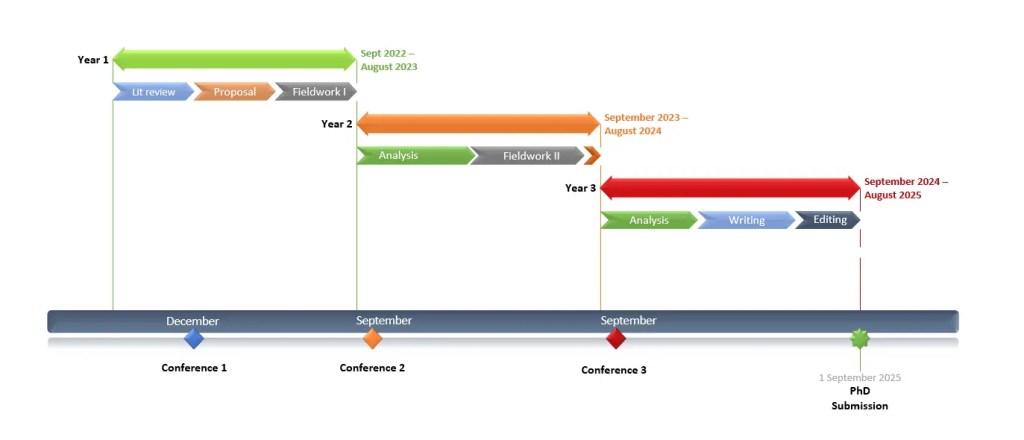
A PhD timeline is there to keep you on track and to showcase the milestones that you reached in your journey so far. However, while it is good to have a solid plan, the future is impossible to predict.
Your PhD timeline should be a living document or chart. Update it regularly!
For instance, a conference may be cancelled. You may have a period of sick leave. An experiment may not work out as planned. Or writing a paper takes longer than expected.
Successful PhD students remain flexible and don’t panic as soon as something does not work out as planned.
So, use your PhD timeline to regularly reflect on your progress and your current situation. Update your PhD timeline when needed, to prioritise tasks and set more concrete and achievable goals for the upcoming months.
Master Academia
Get new content delivered directly to your inbox.
Subscribe and receive Master Academia's quarterly newsletter.
Left your dissertation too late? Ways to take action now
The best email signatures for graduate students (with examples), related articles.

Revise and resubmit: Sample peer review comments and examples

10 tips on how to use reference management software smartly and efficiently

How to organize and structure academic panel discussions

17 strong academic phrases to write your literature review (+ real examples)

How to Create and Use a Gantt Chart for PhD Studies

A Gantt chart is a common tool used in the project management field. It is used for schedule planning of a project and its tasks and activities. It shows the tasks, their start and end dates, and the duration needed to complete them.
A PhD is a project and may last from as few as three years to as long as six years depending on the university and department a student is enrolled in.
In order to successfully complete a PhD program, one needs to plan when each of the tasks will be completed from the word go. A Gantt chart is very useful in doing this.
A PhD student can create one comprehensive Gantt chart or several smaller Gantt charts for each of the major deliverables.
This article discusses a Gantt chart for a general PhD program that has both coursework and dissertation components.
Benefits of a Gantt chart for planning PhD studies
Steps involved in creating a gantt chart for phd studies, how to effectively use the phd gantt chart, final thoughts on the phd gantt chart.
Creating a Gantt chart at the beginning of PhD studies has the following benefits:
- It is easy to create. A student can use the traditional pen-and-paper method or existing digital tools or softwares to create a Gantt chart.
- It is easy to read. The visual presentation of the Gantt chart makes it easy for the student to read and know what is expected of him at any point in time.
- A Gantt chart makes it easy to monitor progress of PhD studies. The user can choose to use different colors for tasks that have already been completed, tasks that are close to completion, and tasks that require more time and effort to complete.
- It forms the basis for monthly, weekly, and daily planning of the PhD studies. Depending on how detailed a student wants to go in terms of planning, the Gantt chart comes in handy when writing out the monthly, weekly and even daily plans.
Step 1: List all the deliverables expected of your PhD program. In this example, the PhD program has the following requirements:
- Coursework, divided into 4 modules each lasting 2 weeks. All 4 modules need to be completed within the first year of study.
- A comprehensive written exam at the end of the fourth module.
- An oral exam once a student passes the written exam.
- Submission of a concept note.
- Submission of a research proposal once a student passes the oral exam.
- Writing a business management case study.
- Three journal papers.
- At least two conference papers.
- A dissertation.
Step 2: For each of the requirements listed above, note the start and end dates. For the above example, the PhD program lasts a minimum of 3 years and a maximum of 6 years. Assuming the minimum of 3 years (beginning January 2021), the activities’ start and end dates are as follows:
Step 3: Using the above information, create the Gantt chart using Microsoft Word, Powerpoint or Excel.
The following are useful resources for creating a Gantt chart using:
- Microsoft Powerpoint: https://www.youtube.com/watch?v=wp0vr6OkW8Y
- Microsoft Excel: https://www.youtube.com/watch?v=00s5efQWrgU&t=10s
- Microsoft Word: https://www.youtube.com/watch?v=F90RdA5X4G0
The Gantt chart created from the above data is shown below. The chart was created using Microsoft Powerpoint.

Step 4: Once the Gantt chart is complete, print it out and hang it on the wall of your study room/area. This serves as a constant reminder of the tasks that need to be done at any point in time, as well as of the progress that has been made so far.
The greatest strength in using the Gantt chart for PhD studies lies in its ability to help one plan ahead. Using the Gantt chart above as an example, the user can plan as follows:
- At the beginning of every month, look at what is required of you. For instance, the student above needs to complete module one of the coursework and at the same time start working on proposal writing.
The student can plan for module one in advance by going through the course structure and expected readings, and reading in advance before the start of the module so that he is able to follow and understand what is being taught. If there are pre- and post-module exams, the student can also prepare for them in advance.
Preliminary tasks for proposal writing can include: discussing your proposed topic with your supervisor, and searching for and quick review of literature to identify the gap that your topic will be addressing. All these can be done in the first month before the actual proposal writing starts.
- The Gantt chart can help you identify the skills that are required for the successful completion of your dissertation. For instance, the student above is expected to write a Business Management case study by June of year 2.
If the student does not have case study writing skills, he can start looking for courses that teach case study writing and complete them way before the deadline for the case study. Same case for skills such as preparing and writing a journal paper, writing a conference paper, data analysis using softwares such as Stata, SPSS, NVivo etc.
- The Gantt chart can help you plan for academic-related events such as conferences.
In the example provided above, the student is expected to attend two scientific conferences (in November of year 2 and March of year 3) and make presentations.
The student can start looking for conferences related to his field that are held during the proposed times and mark the key dates and requirements of the conferences (for instance, abstract submission deadlines, abstract submission guidelines, registration deadlines etc).
- The Gantt chart can help you create monthly and weekly plans for longer tasks such as proposal writing.
In the above sample Gantt chart, proposal writing and defense spans a period of 15 months. By March of the second year, the student is expected to defend his proposal. This may seem like such a long period of time but in reality it is not. This is because it is not the only task that the student will undertake during this period. As a result, it is easier to focus on the tasks at hand and forget about the tasks that seem to have adequate time.
Proposal writing is a daunting task and requires constant reading and updating. To ensure that the student submits his proposal in time, he can create monthly and weekly plans for the task. An example of monthly planning for the proposal writing is provided in the table below:
The monthly plan is based on assumptions, for instance, that the supervisor will review the document within the scheduled timeframe. This may or may not hold, depending on the supervisor.
It is therefore important to allow ample time for such factors that are out of your own control in order to ensure that the task is completed by the deadline.
The monthly plans can further be broken down into weekly (and even daily) plans, for instance:
- Number of papers to read per week (day).
- Number of words to write per week (day).
- How many citations and bibliographies to insert (update) every week (day).
- Number of additional articles to search and add to your library each week etc.
Each of these tasks contributes to the overall proposal writing and make the task completion easier and faster than waiting for the last few months to do it all at once.
A PhD is a medium- to long-term project depending on how long it takes to finish. It therefore requires effective and careful planning from the start of the program to ensure that each deliverable is completed within the stipulated time. The Gantt chart is an easy-to-create, and easy-to-use planning tool that can be used by all PhD students. Not only does it save the student time but it also gives him peace of mind knowing the progress of each and every task required.
Grace Njeri-Otieno
Grace Njeri-Otieno is a Kenyan, a wife, a mom, and currently a PhD student, among many other balls she juggles. She holds a Bachelors' and Masters' degrees in Economics and has more than 7 years' experience with an INGO. She was inspired to start this site so as to share the lessons learned throughout her PhD journey with other PhD students. Her vision for this site is "to become a go-to resource center for PhD students in all their spheres of learning."
Recent Content
SPSS Tutorial #12: Partial Correlation Analysis in SPSS
Partial correlation is almost similar to Pearson product-moment correlation only that it accounts for the influence of another variable, which is thought to be correlated with the two variables of...
SPSS Tutorial #11: Correlation Analysis in SPSS
In this post, I discuss what correlation is, the two most common types of correlation statistics used (Pearson and Spearman), and how to conduct correlation analysis in SPSS. What is correlation...
- Activity Diagram (UML)
- Amazon Web Services
- Android Mockups
- Block Diagram
- Business Process Management
- Chemical Chart
- Cisco Network Diagram
- Class Diagram (UML)
- Collaboration Diagram (UML)
- Compare & Contrast Diagram
- Component Diagram (UML)
- Concept Diagram
- Cycle Diagram
- Data Flow Diagram
- Data Flow Diagrams (YC)
- Database Diagram
- Deployment Diagram (UML)
- Entity Relationship Diagram
- Family Tree
- Fishbone / Ishikawa Diagram
- Gantt Chart
- Infographics
- iOS Mockups
- Network Diagram
- Object Diagram (UML)
- Object Process Model
- Organizational Chart
- Sequence Diagram (UML)
- Spider Diagram
- State Chart Diagram (UML)
- Story Board
- SWOT Diagram
- TQM - Total Quality Management
- Use Case Diagram (UML)
- Value Stream Mapping
- Venn Diagram
- Web Mockups
- Work Breakdown Structure
3 year PhD timeline [classic]
You can easily edit this template using Creately. You can export it in multiple formats like JPEG, PNG and SVG and easily add it to Word documents, Powerpoint (PPT) presentations, Excel or any other documents. You can export it as a PDF for high-quality printouts.
- Flowchart Templates
- Org Chart Templates
- Concept Map Templates
- Mind Mapping Templates
- WBS Templates
- Family Tree Templates
- Network Diagram Templates
- SWOT Analysis Templates
- Genogram Templates
- Activity Diagram
- Class Diagram
- Collaboration Diagram
- Component Diagram
- Data Flow Diagrams(YC)
- Deployment Diagram
- Object Diagram
- Sequence Diagram
- State Chart Diagram
- Use Case Diagram
Related Templates
Tools for MD-PhD Applicants
New section.
Helpful tools and information regarding medical MD-PhD programs.
Combined MD-PhD degree programs provide students the opportunity to earn both the MD and the PhD in areas pertinent to medicine.
Information about MD-PhD programs and possible careers in the social sciences and humanities.
Find medical research opportunities for undergraduates on medical school campuses.

The American Medical College Application Service® (AMCAS®) is the AAMC's centralized medical school application processing service. Most U.S. medical schools use the AMCAS program as the primary application method for their first-year entering classes.
Upcoming short presentations will describe features of MD-PhD training, alumni careers, and detailed logistics of the application process.
Recommendations to help ensure that all MD and MD-PhD applicants receive timely notification about the outcome of their AMCAS® application. These guidelines are not intended to supersede the policies, timelines, or discretion of individual schools or programs. Each applicant is expected to become familiar with the procedures and requirements of each school to which they apply.
Learn about NIH National Institute of General Medical Sciences research training programs for undergraduates, graduate students, postdocs, and faculty.
This Google calendar lists interview and revisit days for MD-PhD programs.

Project Plan Template for PhD
- Great for beginners
- Ready-to-use, fully customizable Subcategory
- Get started in seconds
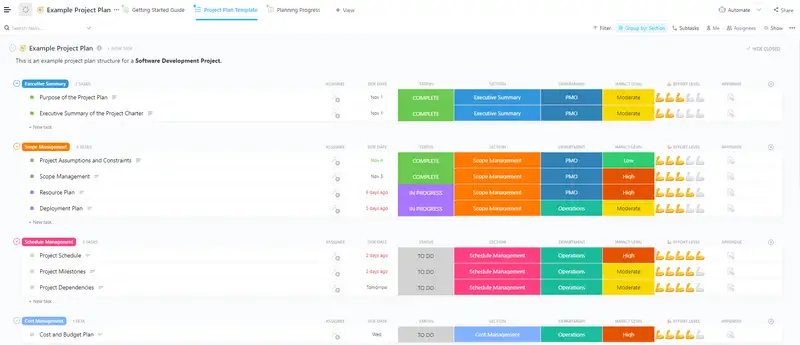
- Organize research activities in an easy-to-follow format
- Provide an overview of coursework, study sessions, and other tasks
- Set achievable goals with clear deadlines for successful completion
Benefits of a PhD Project Plan Template
- Simplified planning and tracking
- Preparation time saved by having all the key information gathered in one place
- Reduced anxiety and stress due to knowing exactly what to expect
- Efficient use of time, since the template freezes the progress of your research
- Helps avoid any nasty surprises along the way
Main Elements of a Project Plan Template for PhD
- Project goals
- Scope of work
- Individual tasks
- Progress reports
How to Use a PhD Project Plan Template
1. brainstorm ideas and goals., 2. establish timeline and milestones., 3. gather resources and tools needed., 4. set up communication channels with team members or mentors/advisers if applicable, 5. create documentation system, 6. track progress periodically, related project plan templates.
- Webinar Project Plan Template
- Email Migration Project Plan Template
- SAP Activate Project Plan Template
- Windows 10 Deployment Project Plan Template
- EHR Implementation Project Plan Template
Related Templates
- Project Plan Template for Outsourcing
- Project Plan Template for Application Migration
- Project Plan Template for EHR Implementation
- Project Plan Template for Real Estate Development
- Project Plan Template for Webinar
Template details
Free forever with 100mb storage.
Free training & 24-hours support
Serious about security & privacy
Highest levels of uptime the last 12 months
- Product Roadmap
- Affiliate & Referrals
- On-Demand Demo
- Integrations
- Consultants
- Gantt Chart
- Native Time Tracking
- Automations
- Kanban Board
- vs Airtable
- vs Basecamp
- vs MS Project
- vs Smartsheet
- Software Team Hub
- PM Software Guide
Understanding and solving intractable resource governance problems.
- In the Press
- Conferences and Talks
- Exploring models of electronic wastes governance in the United States and Mexico: Recycling, risk and environmental justice
- The Collaborative Resource Governance Lab (CoReGovLab)
- Water Conflicts in Mexico: A Multi-Method Approach
- Past projects
- Publications and scholarly output
- Research Interests
- Higher education and academia
- Public administration, public policy and public management research
- Research-oriented blog posts
- Stuff about research methods
- Research trajectory
- Publications
- Developing a Writing Practice
- Outlining Papers
- Publishing strategies
- Writing a book manuscript
- Writing a research paper, book chapter or dissertation/thesis chapter
- Everything Notebook
- Literature Reviews
- Note-Taking Techniques
- Organization and Time Management
- Planning Methods and Approaches
- Qualitative Methods, Qualitative Research, Qualitative Analysis
- Reading Notes of Books
- Reading Strategies
- Teaching Public Policy, Public Administration and Public Management
- My Reading Notes of Books on How to Write a Doctoral Dissertation/How to Conduct PhD Research
- Writing a Thesis (Undergraduate or Masters) or a Dissertation (PhD)
- Reading strategies for undergraduates
- Social Media in Academia
- Resources for Job Seekers in the Academic Market
- Writing Groups and Retreats
- Regional Development (Fall 2015)
- State and Local Government (Fall 2015)
- Public Policy Analysis (Fall 2016)
- Regional Development (Fall 2016)
- Public Policy Analysis (Fall 2018)
- Public Policy Analysis (Fall 2019)
- Public Policy Analysis (Spring 2016)
- POLI 351 Environmental Policy and Politics (Summer Session 2011)
- POLI 352 Comparative Politics of Public Policy (Term 2)
- POLI 375A Global Environmental Politics (Term 2)
- POLI 350A Public Policy (Term 2)
- POLI 351 Environmental Policy and Politics (Term 1)
- POLI 332 Latin American Environmental Politics (Term 2, Spring 2012)
- POLI 350A Public Policy (Term 1, Sep-Dec 2011)
- POLI 375A Global Environmental Politics (Term 1, Sep-Dec 2011)
Scheduling my academic life to the very minute: My weekly template
A lot of people have asked me through the year how I accomplish as much as I do. While I feel enormously flattered, I don’t think I am particularly productive. What I am, is very disciplined . I learned early in my life that I had a really broad range of interests, and that if I didn’t rein in my own impulses, I would be scattered and disoriented before long. I knew I wanted to do academic research and that I wanted to complete a PhD and thus I needed to plan my life accordingly.
What you see above is my weekly template for the Fall 2013 semester (this is a term coined by Tanya Golash-Boza , whose blog I read religiously). It was nice to see a couple of other scholars ( Eric Grollman and Jan in the Pan ) write theirs. Even before I ever read Tanya’s blog, I learned to be organized with my life. I had a similar template for my life when I was a consultant and when I worked in the NGO world. My life is, and has always been, scheduled to the very minute. That was the only way I could play competitive volleyball, teach dance, do theatre, volunteer running literacy programs and teaching adults how to read and write, hang out with my friends, spend time with my family and still maintain a high average in school. All the while, of course, while maintaining sanity.
My schedule is online, and sync’d with my iPod Touch and with my HP TouchPad. This enables me to know what I am doing anywhere at any point in time. For years, my partner and I shared our online calendars, because that made it easier for him and for me to plan our time together. And I booked time for him that nobody else would every overlap with (that was, for me, the only way to maintain a healthy relationship). I follow the same philosophy when I book time for my friends and for my family, as well as for my own health. Nobody can schedule time for THEIR activities when it’s MY time. If you notice, I have left ample time for administrative stuff and for meetings during normal hours.
I am currently on a 1-1-0 teaching load, which is really very healthy and lucky for me. I also have a low number of students that I supervise, and my service commitments are limited too. I am the CIDE Region Centro representative to CIDE’s library, and I also sit on a search committee for a new tenure-track position, so my service does not take a lot of my time. I do have the Associate Editor commitments for the Journal of Environmental Sciences and Studies, and my regular contributions to editorial boards, peer reviewing and so on. But I don’t feel that they are terribly onerous.
I write better first thing in the mornings and I know that if I try to write on campus it will be much harder for me, so I wake up at 4:45am every morning, brew a pot of coffee and I start writing for 2 hours at least. Some of the time you see blocked for “Research” is also where I do a lot of reading and writing, so often times I end up writing for more than 10 hours per week. I also have scheduled time for “recovery” as my energy levels fall rapidly. This is something I knew about my physiology since I was a child, so I always schedule “down time”, otherwise my productivity falls.
On regular weeks I try to be in bed by 9:30pm at the very latest, except when I go out with my best friend from childhood and his wife (who both live in Aguascalientes as well – something that has turned out to help me keep my sanity). Two things I am desperately trying to fit into this schedule is regular volleyball training and frequent dancing, as I do miss those two components from my life.
Of course, academic conferences completely screw up this calendar, but I always try to ensure that at least I get exercise and regular writing in. I rarely attend academic events where the commitment is 12 hours per day or more, simply because I believe that allowing people to disrespect my time and my own schedule is a really bad idea. One exception I make is when my expenses are paid (as I feel a responsibility to the organizers).
A few caveats that I have to recognize:
- I have a low teaching load 1-1-0
- I am single (at the moment), with no children
- I have low service commitments
- Both my parents are academics, so even when I visit them on weekends I bring work with me
- Related: I love my research so I don’t care if I spend more than 60 hours per week on it . This means I often work on weekends and holidays (I try not to, though, at least not too often).
- I have a small army (5) of research assistants, who are incredible . This increases my productivity.
- I have an amazing set of collaborators all over the world, who are brilliant. They keep me honest and encourage me to work really hard.
What I do hope sharing my weekly template with you will achieve is show you the broad range of activities you can engage in and goals you can achieve by being organized and schedule your life every week. This approach works, at least for me. And hopefully it will work for anyone who reads my blog.
EDIT –
Lots of people have asked me “ but what about when you have to go on the field, or when you have something unexpected come up, or at a conference? ” so I thought I’d share my weekly template for the week following (e.g. September 2-6). As you will notice, I’m at an academic workshop all week, except for Thursday when I am doing fieldwork with the same group of water scholars. So, I only scheduled time to write every day, and nothing else. Because that’s the one thing that I want to keep doing regardless! Also, notice I didn’t schedule anything before or after my flights.
My schedule is rigid, I know. As Tanya herself said, I run a tight ship. But I am flexible enough to be willing to shift things around, particularly when the going gets tough. Self-care time does not actually get shifted in the sense that even if it’s an intense week for me, I always will take some time for myself, even if it’s not possible every day at the moment.
You can share this blog post on the following social networks by clicking on their icon.
Posted in academia .
Tagged with productivity , schedule .
By Raul Pacheco-Vega – August 26, 2013
9 Responses
Stay in touch with the conversation, subscribe to the RSS feed for comments on this post .
Thanks a lot for sharing this! As I also commented on Dr. Golash-Boza’s post: I’ve not been scheduling my time hour by hour during my PhD, as I didn’t have that many meeting and could always spend half a day or a full day on a task. But now that I’ll be starting as an assistant professor in Ecuador, combined with a part-time research position back in Europe, I’ll need to make sure that I juggle all responsibilities without dropping a ball on a project or person. For that reason, I’m planning to move to a more detailed, hour-by-hour planning of my time as well.
Quick tech question: is that Google Calendar that you use? I’m moving towards using GoCal more and more, for planning. Or would you recommend another tool?
Some great insight into organising academic life and work. Thanks!
@ Eva – yes, I use Google Calendar. I don’t use anything else, because iCal doesn’t work well with me as I don’t have a Mac. But my iPod and when I had an iPhone, both sync with Google Calendar nicely now.
@ Michelle – glad to help!
When you plan for your week? Every day, weekly, bi-weekly?
@ TT – I plan my schedule a month before the new term starts. Then, every Sunday night, I check if I have something that will deviate my schedule. I always input any meetings I have upon receipt of email. This way, my schedule is always up-to-date and I always know when I will have a day that will not have the scheduled appearance. For example, next week I’m going to do fieldwork. So on Sunday night, I delete all occurrences of anything else other than fieldwork on that day. Or move them around so I get to them eventually. Hope this helps!
Continuing the Discussion
[…] course per term, I am able to keep 3 days out of my 5 days strictly to research duties. If you see my weekly template, you can notice that I am teaching Mondays and Wednesdays, both days when I have a lot of energy. […]
[…] of smaller tasks that I keep in Evernote to produce detailed weekly plans. Taking a leaf out of Raul Pacheco-Vega’s book, these plans not only include what I should be doing but where I should be every hour of the […]
[…] focus on doing the stuff I need to get done and still maintain some degree of sanity and balance. As you may notice in my weekly schedule, I prioritize writing above almost everything else with the exception of napping, taking time off […]
[…] you’ve followed me on Twitter or read my blog for any length of time, you’ll know that I’m pretty rigid in my schedule. Ever since I was a child I have done everything adhering to strict deadlines and I started using […]
Leave a Reply Cancel Some HTML is OK
Name (required)
Email (required, but never shared)
or, reply to this post via trackback .
About Raul Pacheco-Vega, PhD
Find me online.
My Research Output
- Google Scholar Profile
- Academia.Edu
- ResearchGate
My Social Networks
- Polycentricity Network
Recent Posts
- “State-Sponsored Activism: Bureaucrats and Social Movements in Brazil” – Jessica Rich – my reading notes
- Reading Like a Writer – Francine Prose – my reading notes
- Using the Pacheco-Vega workflows and frameworks to write and/or revise a scholarly book
- On framing, the value of narrative and storytelling in scholarly research, and the importance of asking the “what is this a story of” question
- The Abstract Decomposition Matrix Technique to find a gap in the literature
Recent Comments
- Hazera on On framing, the value of narrative and storytelling in scholarly research, and the importance of asking the “what is this a story of” question
- Kipi Fidelis on A sequential framework for teaching how to write good research questions
- Razib Paul on On framing, the value of narrative and storytelling in scholarly research, and the importance of asking the “what is this a story of” question
- Jonathan Wilcox on An improved version of the Drafts Review Matrix – responding to reviewers and editors’ comments
- Catherine Franz on What’s the difference between the Everything Notebook and the Commonplace Book?
Follow me on Twitter:
Proudly powered by WordPress and Carrington .
Carrington Theme by Crowd Favorite
2024-2025 Academic Calendar
Below is the Academic Calendar for: Trinity College of Arts & Sciences, The Pratt School of Engineering, The Nicholas School of the Environment, The Graduate School, The Sanford School of Public Policy, and The School of Nursing
See About the Academic Calendar for links to past and future academic calendars.
The calendars for the following schools can be found on their respective websites: Divinity School , Fuqua School of Business , Law School , School of Medicine , and Duke Kunshan University
JUMP TO: SUMMER 2024 | FALL 2024 | SPRING 2025 | SUMMER 2025 | NEXT YEAR'S CALENDAR | LAST YEAR'S CALENDAR
Approved May 10, 2023 University Schedule Committee Duke University, Durham, North Carolina 27708
Questions or comments? Email [email protected] .
Spring 2024 Commencement
FROM YOUR FIRST DAY AT PURDUE THROUGH THESE FINAL MONTHS, YOU PERSISTED. UNEXPECTED TURNS, DIFFICULT CLASSES, BRUTAL NIGHTS. BIG CHALLENGES AND SMALL VICTORIES.
YOUR REMARKABLE ACHIEVEMENT DESERVES A PROPER CELEBRATION.
Commencement Livestreams
Beginning Friday, May 10, you can join your family, friends and classmates in watching videos from Purdue's Sp r ing 2024 Commencement ceremonies.
View Livestreams
Digital Downloads
Boilermaker poster.

Cake Topper Template

Graduate Yard Signs

Mortar Board Art
Graduate Mortar Boards

If you intend to have any of the above materials professionally printed, you will be asked to provide an official letter of approval from the University.

Denver Broncos 2024 schedule release: Home and road opponents and more on season ahead

The NFL will release the 2024 schedules for all 32 teams at 6 p.m. MT on Wednesday. Here is what we know about the Denver Broncos’ schedule so far.
The Broncos will play each team from the AFC North and NFC South along with the Indianapolis Colts , New York Jets and Seattle Seahawks . Denver also will see its AFC West division rivals twice, once on the road and once at Empower Field, as part of its 17-game schedule. The Broncos will play one more game on the road than at home.
Here is the lineup of home and road opponents, listed alphabetically.
The Broncos went 8-9 in the 2023 regular season, and though it was a losing record, it was their best finish since going 9-7 in 2016. The three-win improvement from 2022 came in the first season with Sean Payton as head coach in Denver. His tenure has been marked with significant change, most notably moving on from quarterback Russell Wilson only two seasons after a blockbuster trade with the Seahawks to acquire him and a massive contract extension. The team also released Pro Bowl safety Justin Simmons and traded 2020 first-round wide receiver Jerry Jeudy to the Cleveland Browns . Payton and the Broncos now begin a new era after drafting Oregon quarterback Bo Nix with their first-round pick last month as they work their way out of the aftermath of Wilson’s contract hit.
Advertisement
There are two juicy storylines we already know about the schedule. Wilson, who signed with the Steelers after being released in March, will return to Denver when Pittsburgh visits Empower Field. Payton, who coached the Saints for 15 seasons, will make his return to New Orleans as the Broncos play a road game there at some point this season. Come back Wednesday night for the Broncos’ week-to-week schedule for 2024, plus season analysis and predictions.
Find the best deals on tickets to see your favorite teams .
(Photo: Dustin Bradford / Getty Images)
Get all-access to exclusive stories.
Subscribe to The Athletic for in-depth coverage of your favorite players, teams, leagues and clubs. Try a week on us.

Nick Kosmider is a staff writer for The Athletic covering the Denver Broncos. He previously covered the Denver Nuggets for The Athletic after spending five years at the Denver Post, where he covered the city’s professional sports scene. His other stops include The Arizona Republic and MLB.com. Follow Nick on Twitter @ NickKosmider

IMAGES
VIDEO
COMMENTS
A typical PhD student schedule involves turning up to the Department between 8 AM and 9 PM, and performing research activities during the day such as reading, writing, analyzing and reporting on literature and experiments. The schedule of a PhD student also changes depending on the culture in your research group.
Example: Planning year 2 of a 3-year PhD. Maria completed her first round of data collection according to plan, and starts the second year of her PhD with a lot of material. In her second year, she will focus on turning this data into two journal articles. Months 1-2: Maria works on her data analysis.
This 2023-2024 PhD-level planner is your new daily guide for your PhD! Within these pages, you will be able to identify your goals, manifest them with actionable steps, and track your career progress. ... Calendar A daily, weekly, and monthly plan to organize and list your key events and priorities.
A PhD research plan or schedule can be prepared using the GANTT chart which includes a month, semester or year-wise planning of the entire PhD research work. First, enlist goals and objectives. It's not about your research objective enlisted in your proposal. I'm talking about the objectives of your PhD.
Free templates and planners available for you to download. The book Planning Your PhD describes a number of planners and forms you can use to help plan your PhD.
Follow these steps as you create your PhD Timeline: Attend the program orientation to understand specific graduation requirements. Make a list of technical events such as conferences, committee meetings, PhD viva voce, presentations, qualification examination, etc. Manage your PhD timeline term-wise or month-wise.
💡Sign up for Notion here: https://ntn.so/marianaYour PhD dissertation is probably one of the biggest academic projects you'll ever have to tackle so it's im...
How I Made My PhD Completion Plan on Excel (With Template) For the last few weeks, I've been working on my PhD completion plan. It's basically an excel spreadsheet that I'm using to track my progress and plan my time for the remainder of my PhD. My thesis is due August of next year (with a 6 month extension) so the clock is definitely ticking.
Actionable PhD research plan template. Now prepare a timeline— in how much time a particular goal should be achieved. For example, 6 Months for sampling (Including, ethical approval, approval from sampling authority, consent, preparation and arrangement for utilities). Another is sample collection— 3 Months which isn't covered in the 6 ...
Free templates and planners available to help with your writing, planning and collaboration. ... ThinkWell 2021 Calendar. A free downloadable calendar to guide you through 2021... Free 3MT - All tools. Download all 3MT forms in a zip .. ... This planner allows you to work out the timeline for the major tasks of your PhD. .. Free
Cute Animal Calendar Keeping track of the days during your PhD is a great idea. It's even better if you have a calendar with pictures of cute animals! Download and print this calendar off so you always have pictures of…Read More→ ... Manuscript Cover Letter Template. By default, the cover letter is one of the first things an editor will ...
Manually creating a PhD timeline Gantt chart in PowerPoint is a bit easier than in Excel. Therefore, I will explain the process here. First, you need to open a blank PowerPoint slide. Then click on Insert (1.), then Chart (2.). A popup will appear.
Template 2: Plan out your semester/year both for personal and professional tasks using the semester calendar template. (If you would like the template below in PDF form, let me know over on my Instagram: @ productivephdninja) Click here for link to Semester Calendar Google Spreadsheet. Hope these templates help you improve your life!
Contents. Why a clear PhD research timeline matters. Step 1: Decide what to include in your PhD timeline. Step 2: Discuss your provisional PhD timeline with your supervisor/s. Step 3: Design your PhD timeline. Step 4: Regularly update your PhD timeline.
Step 1: List all the deliverables expected of your PhD program. In this example, the PhD program has the following requirements: Coursework, divided into 4 modules each lasting 2 weeks. All 4 modules need to be completed within the first year of study. A comprehensive written exam at the end of the fourth module.
Use Creately's easy online diagram editor to edit this diagram, collaborate with others and export results to multiple image formats. You can easily edit this template using Creately. You can export it in multiple formats like JPEG, PNG and SVG and easily add it to Word documents, Powerpoint (PPT) presentations, Excel or any other documents.
Recommendations to help ensure that all MD and MD-PhD applicants receive timely notification about the outcome of their AMCAS ® application. These guidelines are not intended to supersede the policies, timelines, or discretion of individual schools or programs. Each applicant is expected to become familiar with the procedures and requirements ...
Our PhD project plan template gives you the tools to create a detailed roadmap that covers everything from research activities to coursework and milestones. The PhD project plan template helps you: Organize research activities in an easy-to-follow format. Provide an overview of coursework, study sessions, and other tasks.
Image 2 of 2. PhD Planning Gantt Chart Excel Template. $5.00. For the cost of a single coffee, gain access to my Gantt chart template, designed to help you to stay on top of your PhD commitments and be more effective when organising your projects! This simple yet dynamic excel template can be used to map out your remaining PhD duration, predict ...
About this template. Comprised of multiple related Notion databases that form an interlinking system for organising your thesis, in progress papers, publications, research commitments and more! If you're already familiar with Notion and it's immense capabilities, then this is the PhD template for you! Primarily suitable for PhD and other ...
In the template, I've added some example days of writing so you can see how to use the template. Basically, you put the word count for each of your papers / chapters in for each day. For example, on day 1 you had only written 100 words of your first PhD paper, but on day 2 you had a total word count of 200. Don't add in these columns the amount ...
Balancing teaching and research - Raul Pacheco-Vega, PhD linked to this post on December 20, 2013 […] course per term, I am able to keep 3 days out of my 5 days strictly to research duties. If you see my weekly template, you can notice that I am teaching Mondays and Wednesdays, both days when I have a lot of energy.
Thanksgiving recess begins (10:30 PM); Graduate classes 700+ end; Some graduate classes 500-699 may end at department/instructor discretion: November 27 - December 10: Wednesday - Tuesday: Graduate reading period: December 2: Monday: Classes resume (8:30 AM) December 6: Friday: Undergraduate classes end; Remaining graduate classes 500-699 end
Table inside Article Week Date Opponent Time/Network; 1 September 5 at Kansas City Chiefs 8:20 PM | NBC
Everything you need to make the virtual Spring 2024 Purdue Commencement special, including printable materials, video presentations, social media outlets, FAQ and more. Spring 2024 Commencement - Spring 2024 Commencement - Purdue University
Chiefs strength of schedule. The Chiefs have a rather favorable slate considering they are the reigning Super Bowl champions. They are tied with the Bengals, Vikings, and Commanders with the 16th ...
View the Bills' full 2024 schedule with kickoff times and broadcast information
Table inside Article Week Date Team Time (PT) TV; 1 Sept. 8 at Los Angeles Chargers 1:05 p.m. CBS
The Broncos went 8-9 in the 2023 regular season, and though it was a losing record, it was their best finish since going 9-7 in 2016. The three-win improvement from 2022 came in the first season ...